The image of a scholarly gentleman who smiles reassuringly to people on billboards is an everyday occurrence nowadays in Turkey. “Sana Söz!” posters read: “Promise to you!”. “Spring will arrive!” the campaign song follows. The slogan was initiated by the presidential candidate of Nation Alliance and CHP leader Kemal Kılıçdaroğlu, taking inspiration from the Bulgarian tradition of “Martenitsa” which welcomes the arrival of spring, and signals a new beginning for Turkey’s democracy. Different camps in the opposition came together to bring forth this new beginning and they are determined to unseat Erdoğan more than ever.
Turkey is heading to ballot boxes on May 14. The upcoming presidential and parliamentary election, with its more than 60 million registered voters, is considered to be the turning point in Turkey’s seventy-year-old history as an electoral democracy.
So what is at stake in this historical election? Technically, the people of Turkey will be deciding between the continuation of the presidential system with five more years of Erdoğan rule and the reinstatement of the parliamentarian democracy with Kılıçdaroğlu as the president. But a deeper look will suggest that a lot more will be riding on the outcome. On one side the future of Turkey as a free democracy is at stake. On the other: Its future as a sovereign state.
As he approaches what is shaping up to be the toughest election battle of his political career, Erdoğan is confronted with a sharp decline in his voter base, particularly in the aftermath of a colossal earthquake, mounting inflation rates, and government’s inability to regulate a full-blown economic crisis.
The value of the Turkish lira has been on a downward trajectory for several years, with periods of sharp decline in August 2018 and March 2020 due to the government’s economic policies, US economic sanctions, and the pandemic.
Erdogan’s economic policies, which included the decision to cut interest rates, have caused inflation to jump from 20% to over 80%, causing a rapid rise in prices. This hurt the living standards of low-income citizens the most.
His diminishing credibility and interference with the judiciary and media have all played a significant role in the devaluation of the lira. Combined with the country’s reliance on foreign borrowing, the confidence of investors has rapidly declined.
The country’s failure to combat global money laundering and financing of terrorism has placed it on the “grey list” by the FATF and is expected to have negative impacts on its economy and international reputation.
On top of all that, the earthquake in February 2023 worsened the situation even more, causing more than 50.000 deaths and leaving many people suffering. Many citizens have lost faith in the government’s crisis management abilities and blamed them for responding too slowly to the disaster and of failing to prevent unsafe building practices and leaving the people alone in their time of need.
There will also be some logistical challenges in setting up the voting stations in the disaster area with millions of people having moved out of the affected areas.
As the economic crisis deepens and the public support wanes, Erdoğan, and his partners have been employing a strategy to manipulate public opinion and distract them from the country’s financial crisis by creating a common enemy in the form of external and internal threats and by appealing to patriotic, nationalistic, and anti-western sentiments in their electorate. Blaming everyone and everything for Turkey’s problems. Playing up the idea that external forces are responsible for the country’s economic woes and that the country must stand up to the bullies to protect its sovereignty.
Such a strategy needs to be fed regularly with new enemies and fears in order to stay effective: A new development on that front has been the significant rise in the anti-LGBT rhetoric in Erdogan’s campaign. Championing traditional values and family while accusing the opposition of granting rights to the LGBT community. Even though neither Kılıçdaroğlu nor any of his partners in the alliance have made any promises or statements regarding LGBT rights.
The use of fear-mongering and flag-waving is a strategy that has been serving the current administration well albeit in situations without an ongoing economic crisis this severe.
Still, their message had no problem reaching its audience thanks to the overwhelming media advantage in terms of live coverage. TRT, the national public broadcaster of Turkey, has given 85 times more coverage on the People’s Alliance than their opposition, Nation’s Alliance, between April and May. Erdoğan got more than 32 hours of live coverage followed by his partner Devlet Bahçeli (25 hours and 27 mins). And with the inclusion of all members, the total time reached 59 hours. Nation’s Alliance in this period had only 43 minutes while other candidates had none.
As the value of the Turkish Lira continues to decrease, it remains to be seen whether the aggressive rhetoric centered around identity politics will hold the same magic.
Another phenomenon that Turkish politics has been suffering from for a while and one that needs to be overcome by Nation’s Alliance is the political tribalism in Turkish politics. Individuals align strongly with a particular party or leader and view those on the other side of the spectrum as enemies. In some cases, it led to a disregard for facts and reason, as individuals prioritized loyalty to their group above anything else. This made having a productive political discourse extremely difficult and contributed to a polarized political climate often fueled by emotions and identity politics. This is one of the primary reasons for the almost unlimited support for Erdoğan from those who are affected the most by his policies.
Authoritarianism has been gaining ground in Turkey, with weakened political institutions, judiciary, and media. According to the 2023 Varieties of Democracy report, Turkey is now categorized among the autocratizing nations, next to countries like Tunisia, Libya, and Yemen.
The government controls over 90% of national media. This has led to the public relying on independent media outlets to learn about the economic and political crisis in their country. Membership talks were also suspended by the European Union in 2018 due to concerns about democratic principles.
Changes and Challenges in Turkey’s Foreign Policy
Turkey’s foreign policy in the last decade has been marked by a series of significant changes namely its relations with the US and Russia and the conflicts it has actively participated in.
The involvement in the Syrian Civil War began in 2011, supporting various Syrian opposition groups and providing them with arms and training. With the emergence of the Islamic State (IS) as a major threat in 2014, its involvement increased. Turkey joined the coalition led by the US and launched airstrikes against the IS. Turkey objected to US’s support for YPG since it was considered the Syrian branch of the PKK by the Turkish government.
In July 2016, a faction within the Turkish military attempted to overthrow Erdogan’s government but their effort was quickly suppressed. Triggering a massive crackdown on perceived opponents of the government, including journalists, academics, and members of the military. The government blamed the Gulenist elements within the military later designating them as Gulenist Terror Organization (FETO) and demanded the extradition of the US-based cleric from the US. The US’ denial to extradite was another factor that strained the relations between the two countries.
Relations with Russia have been complex and at times strained. In 2015, a diplomatic crisis ensued after a Russian warplane was shot down by Turkey near the Syrian border due to its alleged violation of airspace. However, in 2016, the two countries reached a rapprochement that normalized economic ties and cooperation in Syria. The relations since then have continued to improve with the S-400 deal and the building of the Akkuyu Nuclear Power Plant. During Russia’s war in Ukraine in which President Erdoğan has taken a mediator role while supplying Ukraine with drones, their relationship began to hit a bumpy road again. However, the two countries managed to maintain cooperation. Partly because Putin was not willing to lose Erdoğan whose relations with NATO were already strained. And was set on using it to further undermine Turkey-NATO relations.
Relations with Greece and Cyprus have been strained by a dispute over maritime boundaries in the eastern Mediterranean as well as the recent crisis over the militarization of islands in the Aegean Sea, leading to tensions and a military buildup in the region.
The Syrian Civil War caused a massive refugee crisis, with millions of Syrians seeking refuge in neighboring countries, including Turkey. As of today, Turkey hosts the largest number of Syrian refugees in the world, estimated at over 3.5 million according to official numbers. Turkey’s relations with the EU have also been tense with Turkey accusing the EU of failing to honor the 2016 deal to stem the flow of refugees.
As the numbers increased, Turkey started to face difficulties in accommodating such a large influx of refugees, both economically and socially. The economic crisis and political instability have also made things worse. The increasing anti-migrant discourse and easy granting of citizenship to foreigners have resulted in a voter backlash, as seen in the 2019 mayoral election in Istanbul where the AKP’s rule was toppled by the opposition’s candidate, Ekrem Imamoğlu.
The opposition leader, Kılıçdaroğlu, had refrained from developing a clear policy on the refugee issue, which has allowed some radical and populist voices to rise and fill the vacuum. The most prominent of these was Ümit Özdağ and his newly formed Victory Party, which has been running an aggressive campaign centered around refugees. This forced Kılıçdaroğlu to be more vocal on the subject. He later suggested repatriating Syrian and Afghan refugees, saying, “We will say goodbye to our Syrian guests in two years. In the first week of my presidency, I will take measures to halt all kinds of illegal border crossings.”
Erdoğan’s Opposition
Political advisers and close confidants of President Erdoğan are aware of the reality that this might be the final term in office, as he bears the fatigue of leading the country over two decades. Hence, the sole prospect that Erdoğan’s supporters can foster is to obtain an inconclusive result in the first round and move the presidential election to a runoff.
Meanwhile, the opposition has rallied around Kılıçdaroğlu, with the Peoples’ Democratic Party (HDP) announcing that they won’t be fielding their own candidate to avoid splitting the opposition vote.
HDP was founded in 2012 as a left-wing party that aimed to represent a broad coalition of progressive and marginalized groups, including Kurds, LGBT+ people, women, and workers. The party’s platform emphasizes social justice, human rights, and democracy, and it has been a vocal advocate for Kurdish rights in Turkey.
However, It has faced significant challenges in recent years. The collapse of the Peace Process in 2015 led to renewed armed conflict in the southeast of Turkey which also marked the end of the diplomatic relations between AKP and HDP, including government repression and accusations of ties to the Kurdistan Workers’ Party (PKK), a Kurdish militant group that is recognized as a terrorist organization by Turkey, EU and US. Several HDP leaders and members have been imprisoned on terrorism-related charges, and the party’s ability to campaign and organize has been restricted by the government.
Despite all these challenges, the HDP has maintained a robust presence in the Turkish political landscape, especially in the southeast in which it gets almost univocal support and remains an important force in Turkish politics with its platform continuing to resonate with many progressive and marginalized groups in Turkey.
After falling out with HDP, AKP formed an alliance with the ultra-nationalist MHP in the 2018 elections in order to secure a majority in parliament and pass constitutional changes that would increase the power of the presidency. This was a surprising move since the two parties had a long history of hostility towards each other.
The partnership with the MHP has limited Erdoğan’s political room for manoeuvring. But since all the bridges were burnt between him and HDP. they were the only ally he had with any significance despite the shrinking support.
The Kurdish minority makes up 18% of the population and has long felt sidelined in Turkish politics. Therefore, the HDP’s supporters are seen as a crucial swing vote in the election.
The party is currently facing a lawsuit in the Turkish Constitutional Court, which could potentially result in the party being shut down. As a result, the party has decided to participate in the upcoming elections as the Green Left Party to avoid being excluded from the electoral process.
People’s Alliance, in addition to the AKP and MHP now includes the ultra-nationalist Great Unity Party (BBP) and the Islamist New Welfare Party (YRP).
The partnership with AKP has hurt MHP as well, with many of its members who were anti-Erdogan leaving to eventually found Good Party (IYIP). IYIP then partnered with CHP under the umbrella of Nation Alliance prior to the 2018 election.
Today, the Nation Alliance aka “Table of Six” is a diverse coalition comprised of six political parties including the center-left People’s Republican Party (CHP), Turkish nationalist Good Party (IYI), and four other smaller coalition parties, two of whose leaders were former companions of Erdoğan since the foundation to the heydays of AKP.
The central objective of the Nation Alliance is to reverse the constitutional changes made and reinstate the parliamentary system. Coalition allies contend that the 2017 constitutional amendments that introduced the Turkish type of Presidential system resulted in the concentration of power in the president, diminishing the role of the parliament and eroding the democracy and separation of powers. The alliance further vows to restore human rights, secularism, and minority rights in Turkey.
The youngest and increasingly popular third electoral bloc, The Labor and Freedom Alliance, on the other hand, is a left-wing electoral coalition established and led by the Kurdish-nationalist, liberal People’s Democratic Party (HDP) and accompanied by the Worker’s Party of Turkey (TİP) and other smaller left-leaning parties. While running for a parliamentary election on its own, the Labor and Freedom Alliance declared its support for the presidential candidate of the Nation Alliance, Kemal Kılıçdaroğlu.
Can Kemal Kılıçdaroğlu win?
As a leader, it took some time for Kemal Kılıçdaroğlu to establish himself and find his voice. His humble and down-to-earth style which draws comparisons to Gandhi helped raise his popularity as well as his fame as a fighter against corruption.
Kılıçdaroğlu has a background in economics and has held top positions in Turkish economic and financial institutions in both the government and private sectors. He became the chairman of the CHP in 2010, but the party has not been successful electorally under his leadership until the 2019 mayoral elections where his party won in five out of Turkey’s six largest provinces.
Despite his emergence as the consensus candidate for the upcoming presidential election, some believe that Kılıçdaroğlu lacks the charisma to rally or capture audiences while for others his style might just be the ideal one for today’s situation especially for the people that are sick and tired from the aggressive and polarized nature of Turkey’s political climate.
Kılıçdaroğlu has put economy, democracy, and unity at the center of his campaign while avoiding identity politics and ignoring Erdoğan’s belligerent rhetoric.
He has been facing the risk of alienating the party’s core secular nationalist base while trying to appeal to a wider audience, including former members of AKP. The CHP’s Kemalist, secular, and nationalist identity, which is marked by strict principles and boundaries on certain issues, contrasts with Kılıçdaroğlu’s more conciliatory and pragmatic approach in leading the opposition alliance. This did pose a challenge for Kılıçdaroğlu and his CHP to balance the responsibilities of leading the opposition with the need to maintain the support of the party’s core base.
With the announcement of his decision to run against President Erdoğan for a second time, Muharrem İnce, the former CHP presidential candidate, was again in the race now as the founder and current candidate of the nationalist-secular Homeland Party (MP).
İnce has been able to gain the support of a small but important number of alienated secular nationalist and Kemalist voters who are dissatisfied with Kılıçdaroğlu’s leadership as well as some of the young electorate. By emphasizing a more uncompromising stance on secular and nationalist issues, İnce has been able to capitalize to an extent on the perceived weaknesses of Kılıçdaroğlu and his CHP. However, given that he has little to no chance to even pass the 7% threshold, many critics have accused him of being a spoiler who is splitting the opposition vote and potentially giving a lifeline to Erdoğan by making the election go to the second round.1
The youth is another demographic that will decide the fate of the election. Almost five million young citizens will be voting for the first time. And according to polls, a significant majority of youth want change.
One thing that is foreseeable is that the distribution of seats in the parliament will be decided by the 14th of May at midnight. If no presidential candidate manages to secure 50 percent of the total votes, the top two candidates will proceed to a runoff which is scheduled for May 28th.
Kılıçdaroğlu’s victory could start a new era of democratization and normalization for Turkey. Globally it could mark a new beginning in foreign policy: Restarting the EU accession process, complying with European Court of Human Rights decisions, restoring the relations with NATO by lifting the block on Sweden’s accession to the alliance, and possibly returning to the F-35 Joint Strike Fighter program.
More importantly, it would give everyone an important lesson about the importance of unity and cooperation in the common struggle for democracy.
Even though there is some anxiety about the safety of the election and the peaceful transition of power, the people of Turkey are full of hope, believing that the election will make their country a better place to live in. Let us hope that they are right.
Submit here

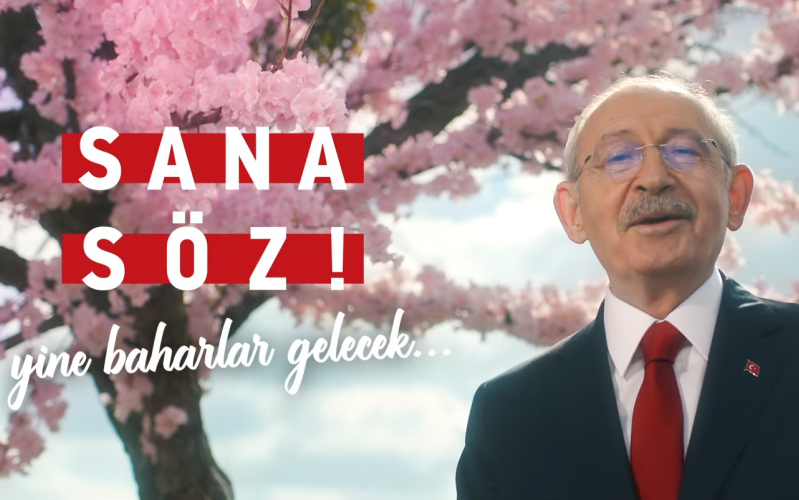
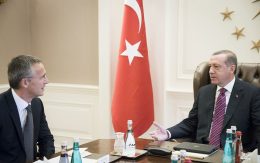
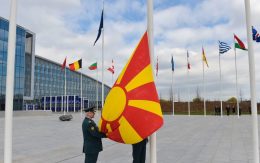
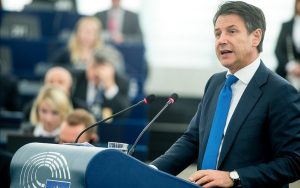
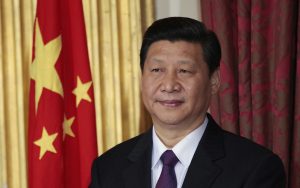
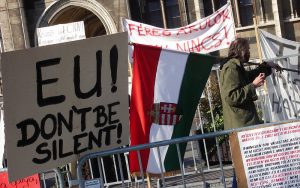
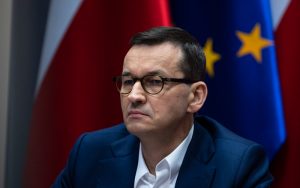

Be First to Comment